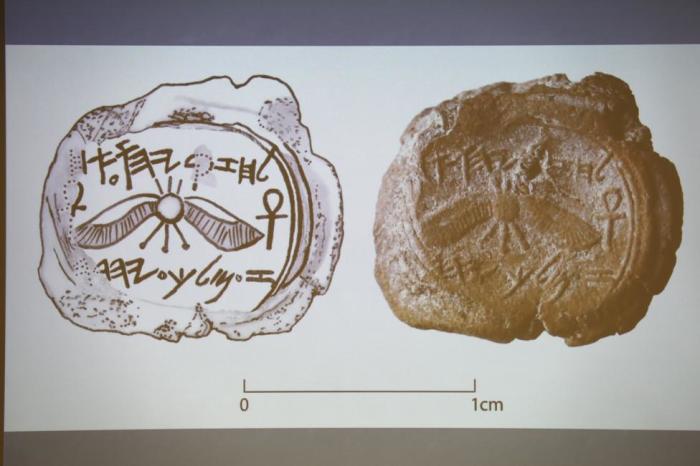Ancient Seals From First Temple Period Discovered in Jerusalem, Pointing to Mass Refugee Influx

Archaeologists have discovered dozens of seals with "biblical-type" names at an excavation at Jerusalem's City of David, suggesting that the city may have welcomed thousands of refugees several millenia ago.
Haaretz reported on the findings on Monday, stating that the seals strengthen the theory that Jerusalem was once the administrative capital of the Judean kingdom.
The biblical names on the seals and seal impressions were reportedly written in ancient Hebrew, with the archaeologists explaining that the Israelite form "supports the theory that Israelites fleeing the Assyrians found shelter, and even high office, in the southern kingdom of Judah."
Joe Uziel, the director of the excavation, along with Ortal Chalaf for the Israel Antiquities Authority, pointed out that more and more seals are being found from before Jerusalem's destruction by the Babylonians in 586 B.C.E.
"Earlier seals, from seals from the 9th century B.C.E. and possibly the first part of the 8th century B.C.E., were pictographic. Many like these were found from the later stages of the Iron Age," Uziel said.
"But from somewhere in the late 8th century B.C.E., until 586 B.C.E., seals started bearing names of the officials sealing the letters."
He further noted that many of the officials had names that can be "very strongly attributed to Judean culture."
Haaretz reported: "And in a sign that some things never change, some had evidently been named after local celebrities. I.e., the kings of the era. Intriguingly, some of the officials were named for Israelite monarchs, not necessarily Judean ones."
Uziel argued that the findings show there was influence of the Israelite kingdom in Judah, which suggests that many of the tribes that fled the Assyrian destruction of the kingdom of Israel in 732 B.C.E escaped south to Judah and made their way to Jerusalem.
The archaeologists said that some of the refugees who reached Jerusalem were able to gain senior positions in Jerusalem's administration, as the names on the seals suggest.
The Times of Israel said that the refugees may have numbered thousands, though their precise numbers are unknown.
One famous name discovered on a seal was the notorious king Ahab, whose wife Jezebel allegedly aided the king to follow the ways of idolatry.
"As a name, it is found in variant forms in Assyrian, and in the Elephantine Aramaic documents it is found as 'Ahiav.' In Greek, in the Greek writings of Josephus Flavius, there appears an Ahiav, as well as in the Septuagint," the article explained.
"In the Greek translation of the Bible, the king is referred to as 'Aha'av,' whereas a prophet mentioned in Jeremiah 29:21 is 'Ahiav.'"
A number of other seals have also been found in Jerusalem's City of David dating back from the First Temple period in previous digs.
Archaeologists found in 2016 a rare seal that belonged to a woman named Elihana bat Gael, which described her as being "exceptional."
"Finding seals that bear names from the time of the First Temple is hardly a commonplace occurrence, and finding a seal that belonged to a woman is an even rarer phenomenon," the excavators behind the Giv-ati project said at the time.





























